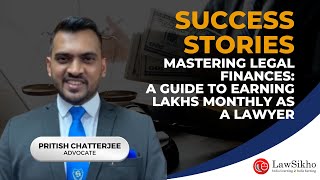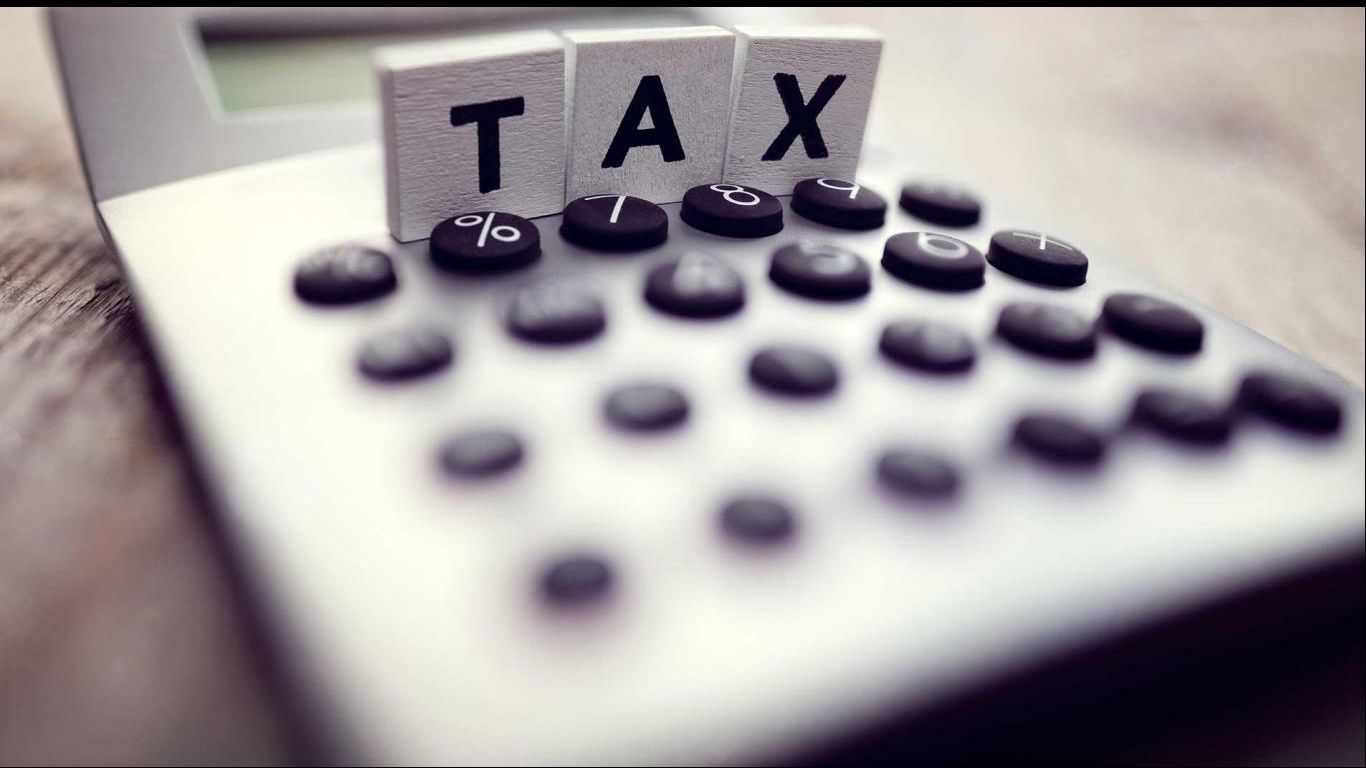As a young lawyer who wants to work in a law firm, tax is a very highly rewarding area to specialise in.
It has low competition but high opportunity, and most lawyers are quite scared of tax laws in law school and afterwards.
If you want to get into an area of law where there is no dearth of jobs no matter how the market is doing, and far less competition than other areas of law, then tax law is a great choice.
India has complex tax laws. Despite significant simplification of indirect tax laws through introduction of GST, laws remain complicated and are changed fairly frequently. It is also a service that almost every business requires.
With government efforts to increase the tax net, the number of taxpayers have been drastically increasing in the last couple of years. Number of businesses paying both GST and Income Tax is steadily rising, which is increasing the future market for tax lawyers and especially corporate taxation lawyers in a big way.
As the Indian economy is moving towards formalization from a mostly informal economy, the clout as well as market for tax lawyers is on the rise.
Government hires a large number of tax lawyers as it is going after non-taxpayers aggressively.
One of the biggest area of growth for tax lawyers in tax advisory, and compliances, which is also done by accountants. However, advice of lawyers is sought after, and this area is seeing growth too.
Apart from ongoing income tax, GST and other tax disputes, significant opportunities also arise in every transaction as tax lawyers provide very critical inputs with respect to tax efficiency of every transaction.
Whether a company should be bought by acquisition of shares or slump sale, whether to acquire the subsidiary or the holding company in another country, how to reduce tax liabilities in each transaction - these things are decided by tax lawyers.
If you want to become a successful litigator, and yet earn well during your early days, starting your career as a tax lawyer is a good strategy. Some of India’s most famous lawyers such as Nani Palkhivala, Harish Salve, Arvind Datar etc. started as tax lawyers, and eventually became the most illustrious constitutional lawyers.
This is partly because tax law matters are high stakes, and the government keeps coming up with new tax laws and changes in existing laws, opening an opportunity for challenging these laws in the court.
The opportunity to build big law firms is also very high for tax lawyers. Several leading full service law firms today were originally started by tax lawyers. Good examples will be Nishith Desai Associates, Lakshmikumaran and Sridharan, Economic Law Practice, Vaish Associates, etc. Ajay Bahl of AZB & Partners used to be a tax practitioner. In these cases, highly profitable tax practices eventually led to creation of larger full service corporate law practices.
In short, tax law offers opportunities like few other areas of law. It is evergreen, always in high demand and good tax lawyers are always short in supply.
Companies which earn thousands of crores have to pay taxes in hundreds of crores. They will go to great lengths to legally reduce their tax burden, which straight on adds to their profits. Naturally, it is lucrative to be an effective tax lawyer.
Who should take this course?
This comprehensive diploma program is designed for a diverse group of professionals seeking to enhance their expertise in corporate taxation and tax litigation. If you fall into any of the following categories, this course is tailored to meet your career aspirations:
- In-house Counsels: Professionals working within companies that frequently encounter tax disputes will greatly benefit from this course. It equips you with the knowledge and skills needed to navigate complex tax issues and effectively represent your organization.
- Law Students: If you are a law student with a keen interest in tax law, or if you aspire to work in a tax law firm or the tax practice of a full-service law firm, this program offers a strong foundation. It prepares you for a successful career in the field of tax law.
- Young Lawyers: Aspiring to join a prestigious Big 4 firm? This course provides you with the specialized knowledge required to excel in this highly competitive sector, opening doors to exciting career opportunities.
- Experienced Lawyers: Seasoned lawyers looking to handle high-value advanced taxation litigation cases will find this program invaluable. It equips you with advanced strategies and insights to effectively represent clients in complex tax disputes.
- Chartered Accountants and Company Secretaries: If you are a Chartered Accountant or Company Secretary seeking to broaden your service offerings beyond standard auditing and compliance practices, this course will empower you to provide high-margin services. It also enables you to independently appear before various Income Tax Tribunals, expanding your professional capabilities.
What will you learn from this course?
Uncover a world of abilities that will not only advance your career but also position you as a vital asset in Corporate Taxation and Tax Litigation.
- Get exposure to strategic and drafting work in connection with corporate taxation
- Learn how to handle entire process from dealing with notices to defending tax cases
- Learn how to create a tax mitigation plan or do tax structuring for transactions
- Learn how to act on behalf of large corporations in tax matters and their commercial priorities
- Apart from statutory knowledge, develop strategic thinking
- Draft various documents, petitions, applications until you are conversant with each
- Step-by-step walkthrough of tax tribunal proceedings
- How to defend your client or business in various forums
- New amendments, cases and ongoing controversies with examples of different industries
- Get exposure to strategic and drafting work in connection with tax cases.
- Learn how to handle the entire process from replying to a notice from tax authorities right up to filing appeals before various courts and tribunals.
- Learn how to compile documentation and precedents for your case and how to present them correctly.
- Learn how to draft synopsis and written submissions before a court.
- Learn about new and emerging areas in Tax Litigation.
- Understand various aspects of client and case management.
- Get comprehensive practical knowledge of tax law from experienced tax lawyers.
- Learn how to act on behalf of large corporations in taxation matters.
- Learn how to set up and manage your own tax litigation practice.
- Apart from statutory knowledge, develop strategic thinking
- Draft various applications, petitions, appeals, reply to notices until you are conversant with each.
- Step-by step walkthrough of proceedings before various courts and tribunals under both direct and indirect tax laws.
- Learn about important tax tribunals, special courts and proceedings before high court and supreme courts.
- New amendments, cases and ongoing controversies.
- Learn how to structure, write and publish an original article. This is the first step to start building your portfolio of work and demonstrate expertise.
What is the career potential after doing this course?
Upon completion of the Diploma in Advanced Corporate Taxation and Tax Litigation, a plethora of promising career avenues open up to you:
- Tax Law Firms: Major law firms invariably maintain robust tax law divisions. While the field may not see a high volume of hires, it is noteworthy that individuals with a genuine interest in tax law are relatively scarce. This is partly due to the apprehension around mathematical and numerical aspects, which are integral to tax law.
- In-House Legal Teams: Corporations, particularly those with extensive involvement in tax law cases, actively seek out tax lawyers. This is exemplified by entities such as prominent telecom companies like Airtel, and conglomerates like ITC, who have dedicated legal teams focusing on tax matters.
- Establishing a Tax Practice: A particularly prestigious and financially rewarding pursuit involves establishing a practice specializing in tax tribunals, and even representing cases in High Courts and the Supreme Court pertaining to tax matters.
- Big 4 Accountancy Firms and Beyond: A wide array of accounting firms, including the renowned Big 4, demonstrate a consistent appetite for employing skilled and certified tax lawyers.
This course equips you with the knowledge and expertise to excel in these diverse career paths, ensuring a promising future in corporate taxation and tax litigation.
Can I get remote freelance work after doing this course?
At LawSikho, we have two types of students: those who already possess good legal skills and those who are in the process of learning. We believe in enabling our learners to start earning from their knowledge without delay.
For students with professional-level legal skills, we offer opportunities in contract drafting, data & privacy, international business law, US immigration law, litigation support, and international IP law work.
However, we understand that acquiring professional-level skills takes time. For those who are still developing their legal skills, we provide alternative work opportunities such as writing articles, conducting research, legal transcription, data entry, law firm administration, social media management, and more. Some students even engage in tasks like voice-over work, data compilation, translation, and virtual assistance.
We have established a dedicated team that actively pitches to organizations in the US to help LawSikho students find remote work.
We have set up a US entity to bridge the trust gap between US legal professionals and an organization operating from India.
We focus on getting learners their first three clients, guiding them in crafting impressive proposals. By the time they secure these initial clients, learners become well-adjusted to the process and can independently attract more clients.
They build their CVs and profiles with real work experience and testimonials, opening doors to numerous opportunities.
Getting started is often the hardest part, but at LawSikho, we make the process frictionless. We have witnessed law students earning well over $1000 per month.
Some students have earned $500 in their first month as a side gig. We have students who, after a year, now earn $10,000 per month. While some may start with $300, they make progress by learning new skills, improving their profiles, and pitching for higher-paying work.
Between April 2021 and June 2023, we created over 21000+ opportunities for our learners, resulting in thousands of students securing freelance work. The total value of work secured amounts to over $3,30,000 (Aprox INR 2.7 Crore). Additionally, hundreds of individuals found employment, and secured internships.
Please note that these numbers represent the initial gigs facilitated directly by us or those on which we actively collaborated with the learners. Students have also secured additional work beyond our tracking
Money back guarantee
We're so confident that you'll love it that we offer a 100% money back guarantee. Here's the deal: enroll in the course, give it your best shot for a month by attending classes and doing all the exercises. If you still don't feel like you're getting value from it or it's just not clicking with you, no worries! We'll happily refund the entire course fee. The only catch is that you need to give it a fair shot for a month. If you're not satisfied after that, we'll gladly give you your money back.
Your success and satisfaction are our top priorities!
View Refund Policy
Here are some of our faculty members
Abhyuday Agarwal
Co-Founder and COO, Lawsikho (former corporate lawyer)
Komal Shah
Co-founder and Chief Knowledge Officer, LawSikho, former in-house counsel and company secretary with over a decade of experience in securities, funds and capital markets
Note:
This is an indicative list of our guest faculty members and not an exhaustive list. We may change the faculty members at any point based on availability.
Course Plan
Above prices are inclusive of all applicable taxes and charges.
 Standard
Standard
RS. 60000
incl. of all charges
View details
Printed study material (by courier)
1 online live class/ week
2 practical or drafting exercises per week
Get digital access to entire study material
Access on LMS, Android & iOS app
Instructor feedback on assignments
Unlimited doubt clearing sessions.
Instructor led course with online live classes
Online exams (give exams as per your convenience on given time slots)
Certificate (by courier)
CV enhancement
Coaching for professional networking
Training for writing and publishing articles
Internship & Job Support
Interview preparation guidance
Access to updated content online for 3 years
Top students are recommended to law firms and companies (as applicable)




 Share
Share
 +91 80474 86192
+91 80474 86192 



 Learn from 3000 Rs/Month
Learn from 3000 Rs/Month  Get course syllabus
Get course syllabus



















































 Key Highlights
Key Highlights














 ADDICTIVE LEARNING TECHNOLOGY LIMITED
ADDICTIVE LEARNING TECHNOLOGY LIMITED











